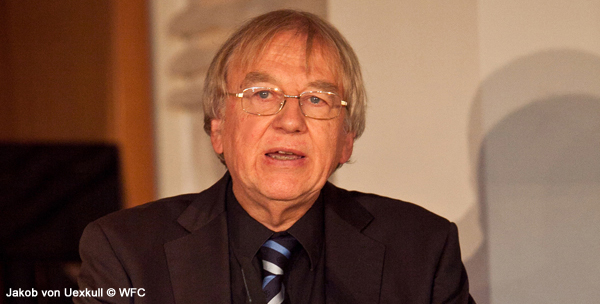
“The idea that after the fall of the USSR we would have this liberal democracy spreading around the world was of course naive but, in many cases, these are issues of power. We have a Western elite that isn’t really interested in democracy unless its friends win. Otherwise, they are happier with a dictator whom they are friendly with. Often if the wrong people win then, suddenly, democracy is seen as not such a good idea,” Jakob von Uexkull, founder of the World Future Council (2007), said in an exclusive interview conducted in Stockholm, Sweden with Nilantha Ilangamuwa, editor of Torture: Asian and Global Perspectives. Mr. Uexkull is also the founder of the Right Livelihood Award (1980), often referred to as the “alternative Nobel prize,” and co-founder of The Other Economic Summit (1984).
“We can have the sanctity of the nation-state in a way where every struggle is national. Unfortunately when there is outside interference it is very rare that it is positive. I was encouraging interference in Bosnia in the 1990s and was very glad of it. But most are in the interest of superpowers and have been disastrous, like in Iraq. I cannot imagine things would be as bad now if Saddam Hussain had been allowed to stay in power. I do believe we need to defend the principles of the UN; if a country is attacked it should be defended but, can we intervene to overthrow undemocratic regimes?” he asked.
While commenting on Sri Lanka, he said, “I think the situation in Sri Lanka has deteriorated; it has gotten better in Indonesia, etc. Politicians don’t have much say as ruled by World Bank but Sri Lanka, in many ways, is a tragedy—people’s lives threatened, etc; a situation made complex in the civil war as no one had much sympathy for the Tamil tigers either.”
As a past member of the European Parliament (1987-89), Mr. Uexkull, served on the Political Affairs Committee and later on the UNESCO Commission on Human Duties and Responsibilities (1998-2000). He has also served on the board of Greenpeace, Germany, as well as the Council of Governance of Transparency International. He is a patron of Friends of the Earth International and lectures widely on environment, justice and peace issues.
Mr. Uexkull has received the Future Research Prize of the State of Salzburg, Austria (1999), the Order of the Cross of Terra Mariana of the Republic of Estonia (2001), the Binding Prize (Liechtenstein) for the protection of nature and the environment (2006) and the Order of Merit, First Class of the Federal Republic of Germany (2009). In 2005, he was honoured by Time Magazine as a “European Hero” and, in 2008, he received the Erich Fromm Prize in Stuttgart, Germany. He is also a recognised philatelic expert with publications such as “The Early Postal History of Saudi Arabia” (London, 2001).
Born in Uppsala, Sweden, Mr. Uexkull is the son of author and journalist Gösta von Uexkull and grandson of biologist Jakob von Uexkull. After schooling in Sweden and Germany, he graduated with an M.A. (Honours) in Politics, Philosophy and Economics from Christ Church, Oxford. He holds dual Swedish and German citizenship. Mr. Uexkull is married and has three children. He lives with his family in London.
As the founder of the Right Livelihood Award, he recalled past experiences and said, “I saw it was needed so I set it up. It was criticised and people thought it was crazy or a CIA plot or a KGB plot at the time. Swedish newspapers, etc. One Member of Parliament believed in it and she convinced her colleagues and, after five years, we were invited to present in Parliament and have been able to do so every year since, which I think it is a remarkable attribute of Swedish democracy and Swedish parliamentarianism. Parliament has no say in the choice. We don’t have to inform them beforehand who we have chosen; that is remarkable and I am very honoured and overwhelmed that we have been allowed that.”
“Even though there have been times once or twice where there were some problems with one party and I went to talk to them and it was okay. Challenge is making the award well known so that the recipients get support and their work is spread. The idea of an award is publicity and inspiring others. I think we have succeeded. There are many more awards today. It is not an anti-Nobel prize and it is also for those who bring the greatest benefit to humanity, like Alfred Nobel wanted,” he added.
The interview will appear in the upcoming issue of the magazine, which will be published soon.
Torture: Asian and Global Perspectives is a bi-monthly magazine which focuses on torture and its related issues globally. Writers interested in having their research on this subject published, may submit their articles to torturemag@ahrc.asia
For more information about the magazine please visit www.torturemag.org